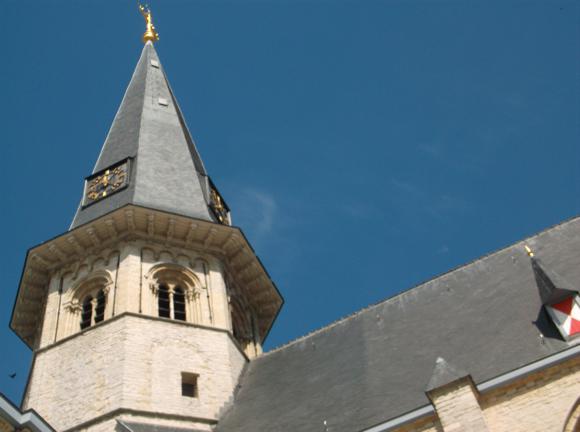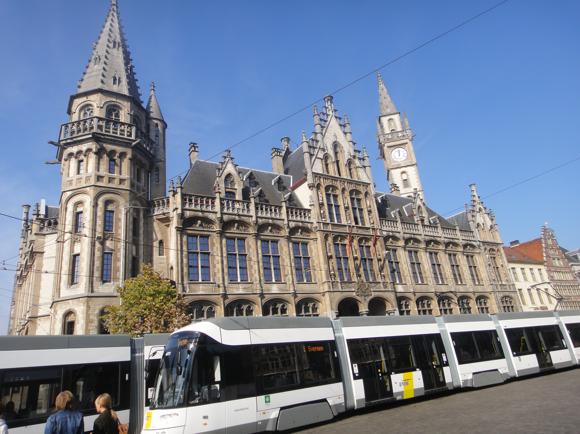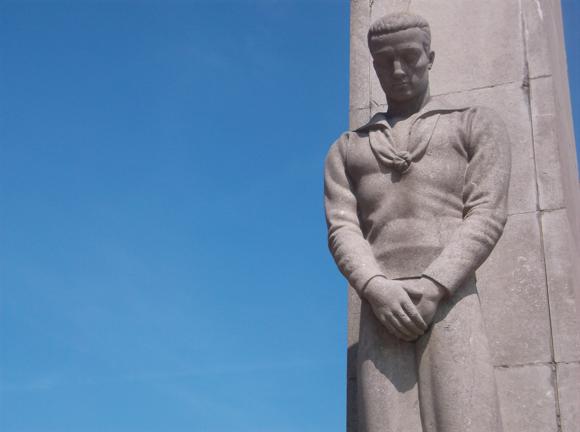Teams, tales and tips – a guide to the local game
So close to Antwerp it’s just off the main tram network, Beveren has welcomed home more major silverware in modern times than Belgium’s biggest city on the opposite bank of the River Scheldt.
The club that won those two league titles and two cups, however, no longer exist. SK Beveren, who claimed those trophies over five golden years in the late 1970s and early 1980s, known as KSK Beveren from 1984, lost their professional status in 2010.
After KSK came… chaos. KSK merged with Sint-Niklaas-based KV Red Star Waasland, named after the region, to become KV Red Star Waasland-Beveren. Known by all as simply Waasland-Beveren, inheritors of KSK’s yellow-and-blue kit and Freethiel Stadion on Klapperstraat west of town, this is the club that was battling in the lower positions of Belgium’s top-tier Division 1A from 2012 to 2021.
After relegation came a takeover, and a name change back to the more popular SK Beveren.

That’s not the whole story, though, because in 2010, disgruntled KSK supporters also formed their own side, KSK Beveren. Considering themselves as the rightful heirs of SK/KSK, fan-owned YB SK paid visits to AFC Wimbledon and FC United of Manchester to help plan their strategy. Currently competing in the 2nd Provincial C Division of East Flanders, the first team plays at Lindenlaan just behind the Freethiel Stadion, and 300 metres from their nearest rivals, FC Bosdam. YB SK charge €5 for league games, €2 for cup matches and friendlies, 12-16s €2/€1, under-12s free.
The original KSK still exist, as a women’s team in Belgium’s highest provincial league, under the same umbrella as YB SK and also playing at Lindenlaan.
For all this community spirit, it’s a far cry from KSK Beveren striding out in 1979 to push Barcelona close in a major European semi-final – after beating Internazionale to get there and shortly before winning their first league title. That night, the Freethiel was packed with 25,000 spectators to see De Boeren (‘the Farmers’) hold Johan Neeskens, Hans Krankl and company to a late 1-0 win.

Original a velodrome, later named after its owner and local brewer Frederik Thielemans, the Freethiel was given over to the newly formed Beveren-Waes in 1938. Founded as Voetbalclub Sportkring Beveren in 1934, renamed Sportkring Beveren-Waes a year later, the club was the natural successor of the short-lived Standaard Football Club Beveren-Waes, created in 1926 and defunct by 1931.
Apart from provincial fixtures, the only game of note at the Freethiel was the friendly against English visitors Eastleigh in 1938. The return match scheduled for the following Easter was never played and, more than 50 years later, the only surviving member of the English team went to Beveren to leave a souvenir cup in the Belgian club’s trophy cabinet.

Beveren’s post-war progress began with the reconstruction of the Freethiel, the sand dunes cleared at one end and a proper stand built. By the 1960s, Beveren were ‘Little Anderlecht’, managed by later World Cup coach Guy Thys, and nurturing locally born Wilfried van Moer, the inspirational international midfielder who would return to his home-town club in the glory days of the early 1980s.
It was around this time that FC Red Star Nieuwkerken/Waas, founded in 1936 and renamed FC Red Star Haasdonk in 1944, began rising up the provincial divisions. By 2002, they were FC Red Star Waasland and based at Belsele in Sint-Niklaas. When a merger with the failing KSK Beveren was proposed in 2010, Red Star had already played six seasons in Division 2.
Promoted to the top flight in 2012, Waasland-Beveren have hardly set the league alight but have at least revived the well-attended derby fixture with Antwerp over the Scheldt.
Getting Around
Arriving in town, local transport and timings
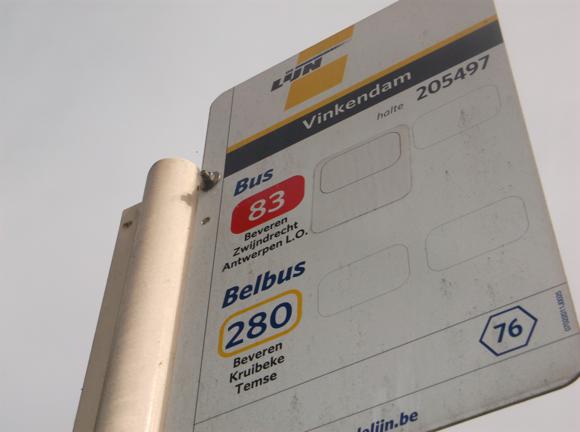
No major budget or national carrier currently uses the nearest airport to Beveren, Antwerp International Airport, 21km (13 miles) away.
Brussels Airport is 56km (35 miles) south. A train runs every 30mins from platform 1 at the airport rail terminal to Antwerpen-Berchem, where you change for Beveren (single €13), overall journey time just over 1hr.\
Choose ‘Any Belgian station’ when you’re booking your tickets for the Eurostar from London St Pancras. From the Eurostar terminal at Brussels-Midi, a train runs every 30mins to Antwerpen-Berchem, where you change for Beveren (single €9), overall journey time just over 1hr.
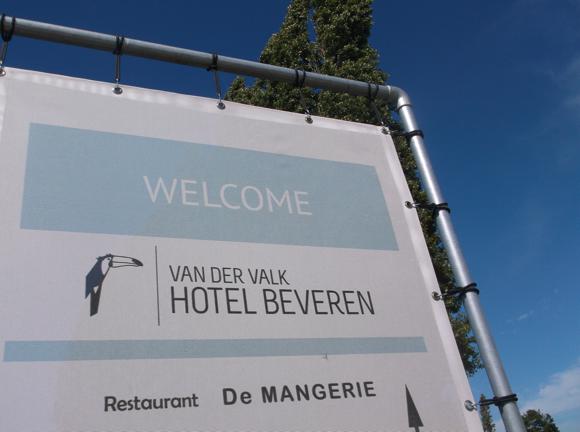
If you’re coming from Antwerp station/Astrid, tram 3 runs all the way to Melsele just outside Beveren.
Beveren station is a 10min walk south of the town centre, along Stationstraat. De Lijn buses run along main road N70 between them, Oude Zandstraat, and also to the stadium a 10min walk west of town. A single ticket from the machine by the stop or the driver is €3, valid for 1hr. Validate your ticket for each journey in the yellow machine.
Based near the stadium, Taxi Waasland (+32 35 00 09 71) also offers airport transfers.
Where to Drink
The best pubs and bars for football fans
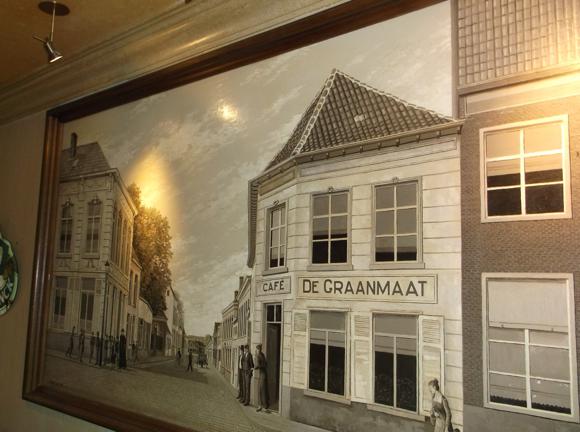


Bars and restaurants line Grote Markt in town. The most outstanding, the timeless Café Sportief, on the corner by the church, lines one wall with old Beveren line-ups, the other with pictures of hero cyclists. All is lived-in, friendly and particularly busy on market days. A terrace catches the late morning sun.
Over the square, Café De Mart has a footnote in local football lore. This is a tasteful makeover of De Graanmart, depicted on the wall, whose regulars played for the first club in town, Standaard. After it folded, in 1934 they were challenged to a match against Temse, and the players stayed together to form what would become SK Beveren. Locals still gather here in numbers, with TV games screened.
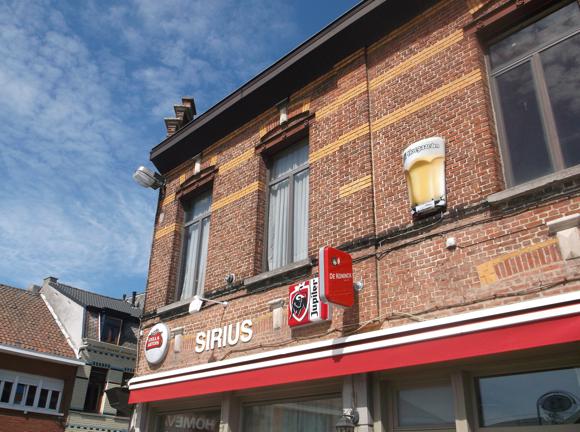
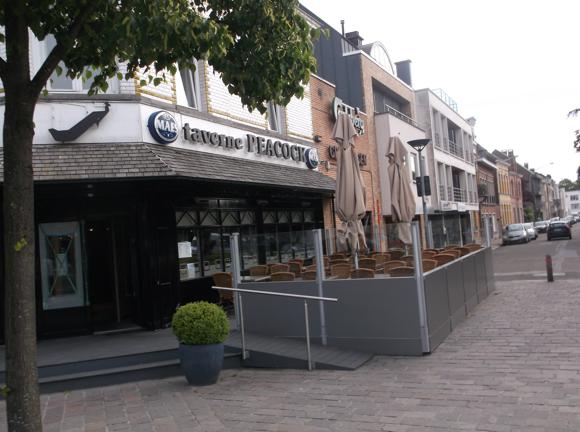

On the church side of the square, Peacock’s has gone from standard corner bar to restaurant but remains a convivial spot for a beer.
Halfway between town and the station on Stationstraat, ’t Copke is another dyed-in-the-wool Beveren bar, its walls covered in old photos of town and team line-ups, with a big TV for match-watching in the corner.
Opposite the station, the Café Sirius also focuses on football – a branch of the Beveren supporters’ club meets here. It’s otherwise a classic friendly little Belgian bar, with Belgian beers and billiards, and a sun-catching terrace outside.
Where to stay
The best hotels for the stadium and city centre
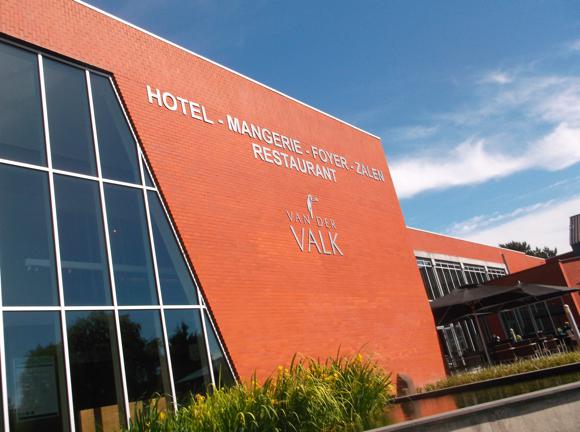


Tourism Beveren has a hotel database with a click-through booking function.
The only hotel in town is, in fact, outside it: on main Gentseweg 2.5km from the centre, a 15min walk from the stadium, the Van der Valk Beveren caters to business travellers and weekend visitors alike with 14 meeting rooms, two restaurants, one specialising in sushi, and a spa centre with a pool, gym, saunas and various treatments on offer. There are also three-for-two package deals over the weekend, and lazy Sunday packages until 5pm.
With no hotels in Beveren itself, an alternative might be to stay by Antwerp Berchem, 15min away by direct train, at the Park Inn by Radisson Antwerp Berchem across Binnensingel.
The only other lodging options in Beveren itself are two upscale B&Bs. Koetshuis Botsdam stands on main Oude Zandstraat by the town centre, offering suites and apartments at €100-plus, including one with its own sauna.
On Kloosterstraat just east of the centre, Notarishuis Beveren has seven elegant rooms, all Italian bathroom floors and Egyptian cotton on the beds, singles for €90, doubles €105. Breakfast is extra but plentiful and there’s an outdoor pool in summer.

